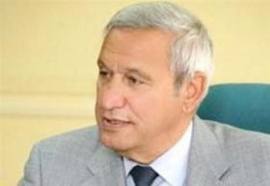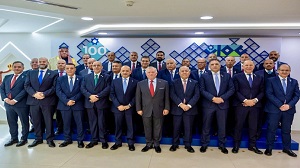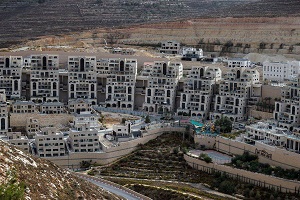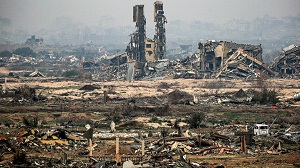Prosecutors freeze assets of Walid Kurdi

The Jordan Times
AMMAN — The Anti-Corruption Commission’s (ACC) prosecutors on Saturday froze the assets of the former CEO of the Jordan Phosphate Mines Company (JPMC), Walid Kurdi.
The decision was taken based on the suspected corruption case related to marketing and shipping deals the company signed with foreign firms, estimated at $40 million, the Jordan News Agency, Petra, reported.
Investigation showed that after the 2006 privatisation deal of the JPMC, the company signed maritime shipping contracts with a foreign company, whose owners remain anonymous, at higher rates than those prevalent in the market, according to Petra.
Investigation also showed that the JPMC ignored signing the said contracts with the Jordan International Chartering Company (JICC), of which the JPMC owns more than 30 per cent.
The ACC investigation unveiled that those foreign companies had signed several sea freight shipping agreements with the JICC at prices lower than those agreed on with the JPMC.
The anti-graft commission estimated the difference in contracts between 2008 and 2011 to exceed $40 million.
The probe showed that the Aqaba Development and Marine Services (ADMS) company with which the JPMC signed a deal to ship 250,000 tonnes of phosphate to Turkey in 2010, was found to be owned by Kurdi and his relatives.
The agency also found that the ADMS owned around 70 per cent of the contracts that the JPMC signed with shipowners to transport the phosphate from Aqaba to other countries, according to Petra.
ACC prosecutors general Abdul Ilah Assaf and Assem Tarawneh issued the order in line with the Economic Crimes Law and the Penal Code.
In August, the ACC referred another file related to the company to the prosecutor over suspected corruption.
The file contained violations estimated at JD300 million, due to company practices surrounding the sales of DAB fertilisers between 2007 and 2012.
The ACC’s report said that the JPMC sold the fertilisers to a company in Dubai, which in turn sold the fertiliser to an Indian company.
The difference between the two prices is estimated at around JD152 million, according to Petra.
Nationalising JPMC
In March this year, the Lower House’s investigation panel into the privatisation of the JPMC wrapped up its mandate, referring to deputies a set of recommendations, only three of which were approved.
An overwhelming majority of MPs voted down the panel’s recommendations to refer to the judiciary any of the 16 persons whose names were listed in the panel’s final report as “most likely” involved in corruption cases.
Among the persons listed in the report were former premier Marouf Bakhit along with four members of his 2007 Cabinet: Ziad Fariz, Suhair Al-Ali, Abed Shakhanbeh and Sharif Zu’bi.
The list also included former finance minister Mohammad Abu Hammour, who headed the higher steering committee overseeing the privatisation programme and former Royal Court chief Bassem Awadallah, who has also served as finance and planning minister several times during the past decade.
A majority of MPs voted in favour of the committee’s recommendations to the government to terminate the JPMC privatisation agreement on grounds of its “unconstitutionality and illegality”, grant concession rights for the exploitation of phosphate in other regions in the Kingdom, and rectify the status of the board of directors of the formerly state-owned JPMC.
Latest News
-
 King attends Amman Chamber of Commerce celebration of over 100 years since its founding
King attends Amman Chamber of Commerce celebration of over 100 years since its founding
-
 Jordan, Arab, Islamic countries condemn Israeli measures to impose sovereignty over West Bank
Jordan, Arab, Islamic countries condemn Israeli measures to impose sovereignty over West Bank
-
 Crown Prince meets with community leaders, notables in Sahab District
Crown Prince meets with community leaders, notables in Sahab District
-
 Top Hamas leader rejects disarmament or ‘foreign rule’
Top Hamas leader rejects disarmament or ‘foreign rule’
-
 Zelensky: Trump wants Russia-Ukraine peace deal by June, before midterms focus
Zelensky: Trump wants Russia-Ukraine peace deal by June, before midterms focus